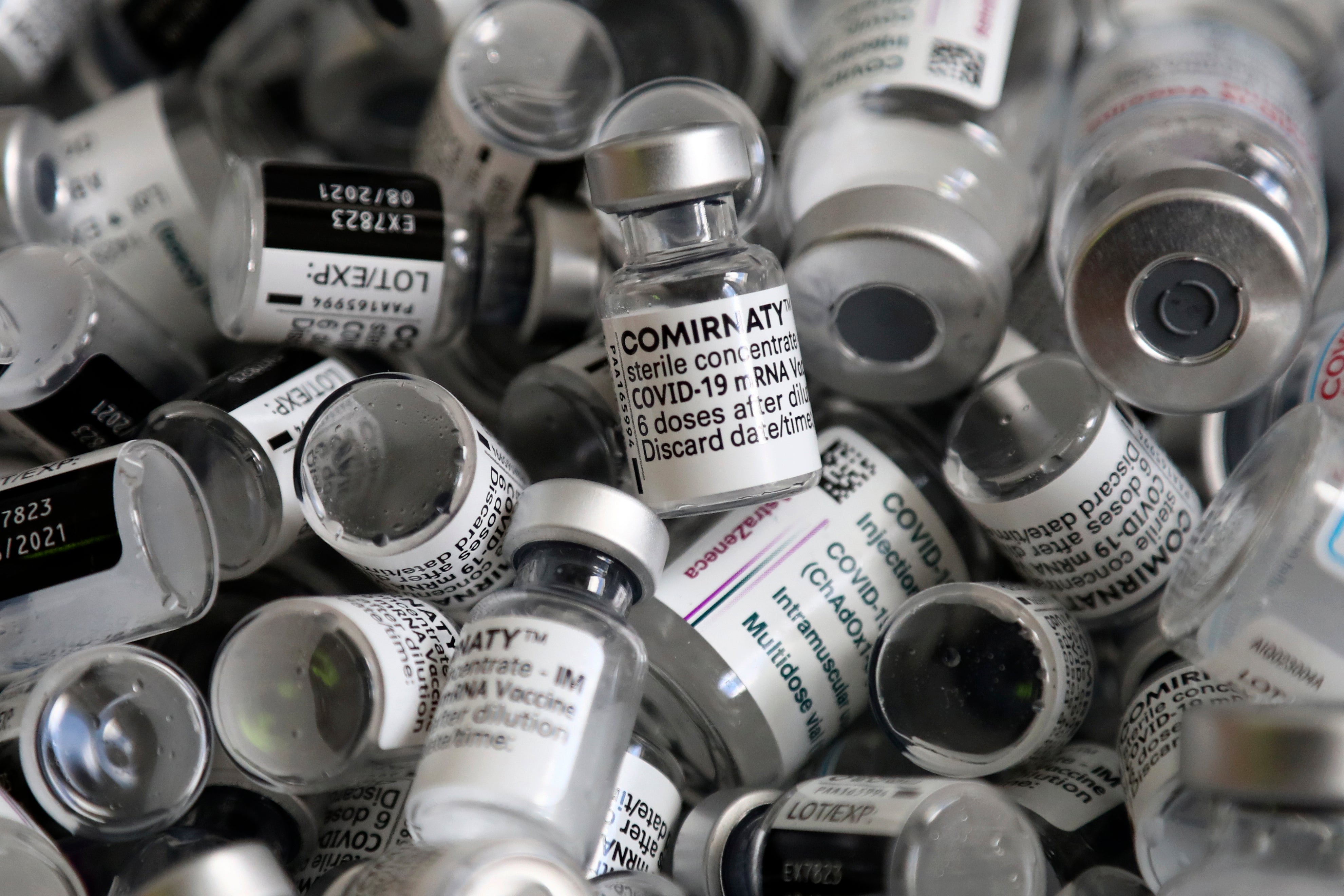Covid vaccine: Pfizer jab recipients have fewer antibodies against Delta variant
After one dose of Pfizer vaccine, blood samples showed only 32 per cent antibody protection against dominant Delta variant

A recent study found that Pfizer jab recipients not only had almost five times fewer antibodies to protect against the Delta variant than the original strain of Covid-19, but also that these antibody levels decreased with time and age.
The study, conducted by the Francis Crick Institute and the National Institute for Health Research, provided greater evidence for the need to shorten intervals between jabs, and to provide booster jabs, in order to keep as many people out of hospital as possible.
The study analysed blood samples from 250 healthy individuals who received the Pfizer vaccine, and tested the ability of their antibodies to neutralise the different Covid variants.
After a first dose, Pfizer jab recipients had 79 per cent antibody protection against the original strain, 50 per cent against the Alpha (Kent) variant, and only 32 per cent against the Delta (India) variant.
Researchers found no significant differences in results based on sex or body mass index, but determined that with time and age, antibody levels decrease against all variants, even amongst those who had received a second dose.
Study authors are recommending that booster shots be given in autumn – particularly for older adults, and those who are immunocompromised – and decreasing the interval between first and second doses to improve antibody levels.
But it is not solely antibody levels that predict vaccine effectiveness, and scientists say that additional studies will be required to better understand how the virus is evolving to evade vaccines.
Emma Wall, UCLH Infectious Diseases consultant and senior clinical research fellow for the study, said: “This virus will likely be around for some time to come, so we need to remain agile and vigilant. Our study is designed to be responsive to shifts in the pandemic so that we can quickly provide evidence on changing risk and protection.”
David LV Bauer, the group leader of the Crick’s RNA Virus Replication Laboratory, called the study “a powerful example of effective collaborations between NHS and academic colleagues, that can help us navigate changes in this new phase of the pandemic.”
Pfizer has been contacted for comment.
Over the past week, 278 people attended A&E across the UK with the now-dominant Delta variant, 94 of whom were hospitalised. As of 2 June, there had been 12,431 confirmed cases of the variant, representing a 79 per cent increase from the previous week’s figure of 6,959.
On Friday morning, Imperial College London epidemiologist Neil Ferguson told the BBC’s Today Programme that the Delta variant was likely 60 per cent more transmissible compared with the formerly dominant Alpha variant.
Public Health England found that the Delta variant appears to be twice as likely to lead to hospitalisation compared with the Alpha variant. However, the majority of those who have been hospitalised are those who have not been vaccinated, and have no neutralising antibodies to protect against the virus.
The Francis Crick Institute says that more research is underway to determine antibody protection associated with the AstraZeneca jab across the same coronavirus variants.
Subscribe to Independent Premium to bookmark this article
Want to bookmark your favourite articles and stories to read or reference later? Start your Independent Premium subscription today.

Join our commenting forum
Join thought-provoking conversations, follow other Independent readers and see their replies